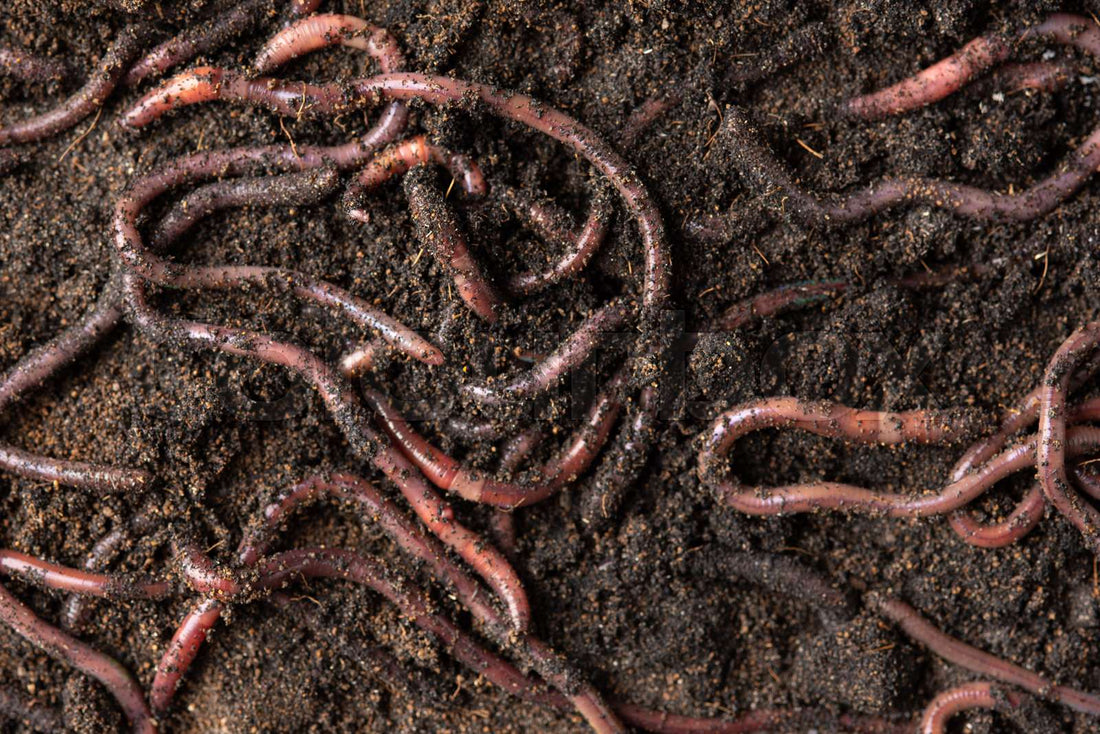
Worms - The Microbial Alchemists
Share
Feeding the Soil to Feed the Plant
Microbiology isn’t something I claim to fully understand. Honestly, I’d be wary of anyone who might claim they do. We hit the edge of understanding the system dynamics of soil ecology pretty quickly. So, let’s lean into the unknown – it may hide the path to a climate haven. Or at least that’s where a lot of my faith lies.
What I do know is that the soil is alive, and microbes are nature’s transformers. They consume, process, and unlock nutrients into bioavailable forms—the kind plants can absorb. Microbes like bacteria and fungi break down organic matter (e.g., crop residues, manure) using enzymes. This process also contributes to humification, forming stable organic compounds that enhance soil structure, water retention, and carbon sequestration. The pivotal role played by decomposers has been grossly neglected in conventional agriculture methodology. Instead, lets support soil life and explore the vast opportunity to learn to harness the power of these decomposers and their effects on plant vitality.
Worms Are Microbial Alchemists
Worm digestive systems host both decomposers (which break down organic matter) and recomposers (which rebuild it into stable humus). This process creates a living, breathing soil amendment. If you dig down and find worms in your soil, it’s a blessing and indicator of health. But intentionally cultivated worm castings (vermiculture), can be used as a focused, effective tool to build resilience in plants.
Worms are microbial powerhouses. Studies have shown that castings contain up to 1,000 times more beneficial microbes than surrounding soil. These microbes include nitrogen-fixing bacteria, mycorrhizal fungi, and actinomycetes, all of which contribute to nutrient cycling and disease suppression. Just as our bodies thrive on a diverse diet to support a healthy gut microbiome, soil ecology thrives on a variety of organic material inputs to support a robust microbial community. Feedstock (worm food input) diversity is key to keeping worms happy, healthy, and producing castings that are rich with the microbes, micronutrients, and enzymes that lay the foundation for a thriving ecosystem.
Worm Castings in Biodynamic Agriculture
In biodynamic agriculture, the garden is viewed as a self-sustaining organism. Worm castings play a vital role in this system and act as a conduit between surface and subsurface organisms. Biodynamic preparations rely on micronutrient-rich materials to activate soil and plant vitality.
Comfrey, for example, is often used in biodynamic feedstock due to its deep taproots that mine minerals like potassium, calcium, and iron from subsoil layers. When fermented and fed to worms, these nutrients become bioavailable in the castings, creating a potent soil amendment that supports both plant growth and microbial diversity.
Soil Health and Human Health
Food grown in biologically depleted soils often lacks essential micronutrients—an invisible deficiency with real consequences for human health. I’m particularly drawn to the Biodynamic methodology, which uses a dynamic array of worm castings and herbal ferments to address critical gaps in zinc, selenium, magnesium, and more. These deficiencies in our diets are increasingly linked to chronic conditions such as fatigue, immune dysfunction, and cognitive decline.
By restoring microbial life to the soil, we’re not just cultivating stronger crops and more nutritious food—we’re actively reversing the legacy of chemical agriculture that has sterilized our soils and, in doing so, compromised our health and environment.
